Trump fires his former Iran envoy Brian Hook on first day
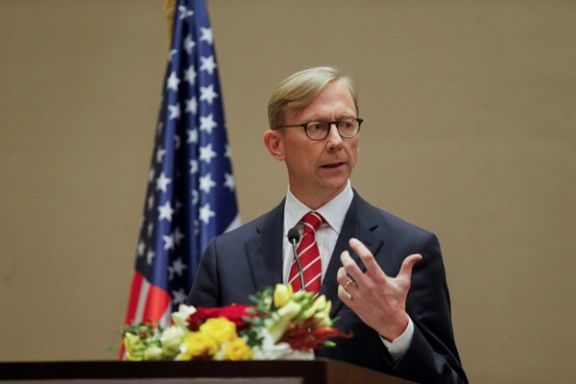
US President Donald Trump announced he has fired Brian Hook, the special envoy for Iran during his previous term, as he marked his return to the White House on Monday.

US President Donald Trump announced he has fired Brian Hook, the special envoy for Iran during his previous term, as he marked his return to the White House on Monday.
"Our first day in the White House is not over yet! My Presidential Personnel Office is actively identifying and removing over a thousand presidential appointees from the previous administration who are not aligned with our vision to Make America Great Again," Trump wrote in a post on Truth Social shortly after midnight.
He added, "Brian Hook from the Wilson Center for Scholars… YOU'RE FIRED!"
It was not clear which position Hook was being fired from because he was also involved in managing Trump's hiring for the state department.
During Trump’s previous presidency, Hook played a key role in championing the administration's heavy sanctions, which targeted Iran's economy and strained the Islamic Republic’s finances.
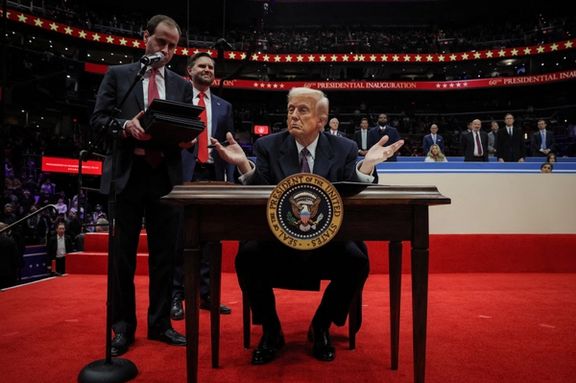
As Donald Trump returned to the White House, Iran is seeking Iraqi mediation to facilitate talks with the United States, according to UAE-affiliated Erem News on Monday.
An unnamed political figure in Iraq has received approval to create a special channel for mediation between Washington and Tehran, the outlet said, citing its sources.
The report noted that with the growing possibility of Israeli attacks on Iran, Iraqis feel concerned about the potential harm to their country’s security and stability.
"Iranian political leaders, on behalf of Masoud Pezeshkian’s government, told Iraq they are ready to start talks and sit at the table with the US," Erem News said, quoting one of its anonymous sources.
Last week, Iraqi Foreign Minister Fuad Hussein stated that his country aims to maintain good relations with the US during Trump’s presidency.
Donald Trump was sworn in for his second, nonconsecutive term as US President on Monday.
During his first term, Trump introduced a series of measures in order to curb Tehran's regional influence, focusing on its nuclear program. Washington's sanctions also significantly impacted the Iranian economy.
Trump withdrew his country from the nuclear agreement with Tehran, but, despite some overtures for talks, avoided pursuing negotiations for a new deal, focusing instead on a "maximum pressure" campaign.
Meanwhile, on Tuesday, Iranian Deputy Foreign Minister Kazem Gharibabadi said Tehran is ready to negotiate, calling it "the wisest course of action to start lifting sanctions."
"We have always been ready, and if others are prepared too, we believe talks will begin and succeed. If others take a different approach, Iran will adjust its strategy," he added.
Former Iranian parliamentarian Ali Motahari told the Rouydad24 website that Iran should hold direct talks with the US, stating, "Using a mediator cannot solve the issue."
Earlier this month, the country's Supreme Leader Ali Khamenei called supporters of talks with the US "intimidated by the enemy" and urged officials not to bow to "unreasonable American expectations" when addressing issues like hijab, inflation, and currency.
In recent weeks, the Kayhan newspaper, funded by Khamenei, has repeatedly criticized officials who discussed negotiating with the US.
On Monday, Kayhan doubled down on its narrative, writing that President Trump could only "enter Iran" under one condition—"to face punishment for ordering" the assassination of Qassem Soleimani.
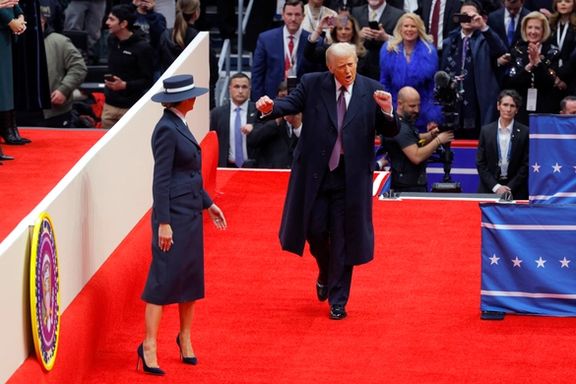
President Donald Trump told hostage families he would have deprived Iran of the money to aid the Oct. 7 attack, putting the Mideast crisis at the center of his first rally since being sworn in on Monday.
"We've got to stop some wars there are some stupid things going on," Trump told thousands of supporters at an indoor gathering in Washington DC.
"Israel would've never been hit on October 7," Trump said, "Iran was broke. Anyone that bought oil from Iran ... China passed, everybody passed."
The newly-minted head of state whose sanctions piled pressure on Iran's oil revenue in his first term and hit Tehran's spending on armed allies in the region, also ordered a deadly drone strike on a top Iranian commander, Qassem Soleimani.
Since that 2020 attack, Iranian officials have blasted Trump in strong terms, but since his November re-election, some quarters have softened their tone and mooted talks.
"They were broke; they didn't have money for Hamas, and they didn't have money for Hezbollah," Trump continued, then addressing the families: "Your sons would be alive, and they certainly wouldn't be incarcerated where they are. It's such a shame."
Later in the evening Trump inked a raft of executive orders at the White House, telling reporters that Israel had weakened Iran badly over a 15-month conflict in the region.
"They're weakened in a different way, the one attack by Israel really set them back - the pagers," Trump said, referring to an attack on Hezbollah leaders' communication devices last year which maimed many and injured Iran's envoy to Lebanon.
"And others," Trump added. "The attack on air defense was a bad attack for Iran."
Israel appears to have knocked out much of Iran's anti-air capability with an Oct. 26 series of air raids in retaliation for an Islamic Republic missile attack on Israel.
Speaking before Trump at the rally, his Mideast envoy Steve Witkoff, who was instrumental in talks which led to a Gaza-Israel ceasefire last week, told rally-goers Trump could solve the region's deepest problems.
"President Trump's leadership has redefined what is possible in the pursuit of progress and stability in the Middle East. his decisive pragmatic approach ensures that even the most entrenched conflicts are met with fresh perspectives and innovative strategies."
Trump counted the so-called Abraham Accords between several Arab countries and Israel as one of the top accomplishments of his first term.
Witkoff said with Trump's leadership he "would be engaging with leaders across the region to find pathways toward sustainable peace and stability."
"Every nation deserves the right to determine its own destiny free from the interference of foreign powers," he added, in a possible reference to regional states in Iran's orbit.
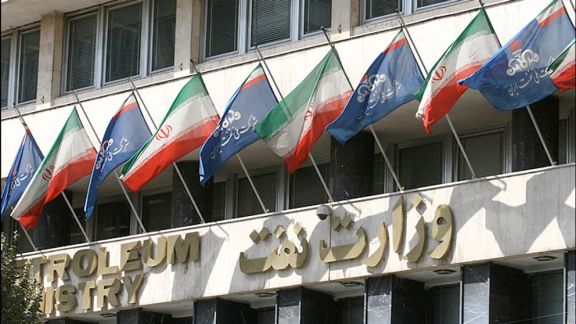
A building owned by the National Iranian Oil Company (NIOC) in Rotterdam has been seized after being sold nearly two years ago to a Dutch firm to partially settle a $2.6 billion debt owed to the UAE-based Crescent Gas Corporation (CGC).
Tehran-based Shargh newspaper reported that the building’s confiscation followed a Dutch court’s rejection of NIOC's request to annul the auction of its Rotterdam property, ruling in favor of the buyer, Dutch real estate company Heuvel Vastgoed B.V. The building, seized due to an arbitration ruling, had been sold on April 20, 2023.
Shargh's report said that NIOC had argued that the building, as a government-owned asset, should be immune from seizure. Heuvel, however, countered that the property was acquired legally through a public auction.
Ultimately, the court dismissed all of NIOC's appeals, including the request to reclaim the building, the report said.
NIOC's $2.6 billion debt to CGC stems from disputes over a 25-year gas supply agreement signed in 2001.
In April 2001, NIOC entered into a contract with UAE based Crescent Petroleum Company International Limited (CPCIL). However, in 2003, CPCIL assigned its rights and obligations under to its wholly-owned subsidiary, CGC.
The agreement required NIOC to deliver 600 million cubic feet of gas per day via pipeline.
The contract, finalized during the second term of Iran's president Mohammad Khatami, faced challenges after President Mahmoud Ahmadinejad's administration, elected in 2005, questioned the agreed price of $18 per 1,000 cubic meters, amounting to $98.5 million annually. As a result, the gas supply never commenced as planned.
This led to CGC to file a case against NIOC in 2009 with the international court of arbitration, and in 2010 the NIOC cancelled the contract. Iran then ignored a 2013 arbitration court ruling in The Hague that found the Iranian side liable. An international tribunal ruled in 2014 that the NIOC was in breach of its obligation to deliver gas since December 2005.
In September 2021, a tribunal ruled that NIOC must pay CGC approximately $2.43 billion in damages, plus interest. This award comprised $1.3 billion for CGC's lost profits and $1.1 billion for CGC's liability to its subsidiary, Crescent National Gas Corporation Limited (CNGC), for its lost profits.
The seizure of the Rotterdam building is not the first time Iranian assets have been confiscated over CGC-related debts. In April 2024, a British court ordered the confiscation of a £100 million ($125 million) property in central London owned by the National Iranian Oil Company (NIOC). Known as NIOC House, the building was located near the British Parliament and Westminster Abbey and had been in Iranian ownership for nearly 50 years.
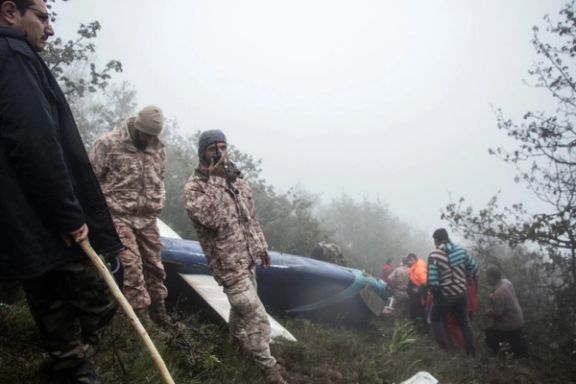
The Iranian Armed Forces released a statement on Saturday, rejecting any suggestion that the helicopter crash involving President Ebrahim Raisi was caused by anything other than bad weather.
This comes after an interview with a family member of Raisi cast new doubts on the official explanation of an accident.
“These claims are far from the truth and appear to be either a result of ignorance or presented with particular intentions,” the statement said. It emphasized that “The cause of the helicopter crash that led to the martyrdom of Ayatollah Raisi and his companions was solely ‘the complex weather and geographical conditions of the area.’”
On May 19, 2024, a helicopter crash in northwestern Iran killed everyone on board, including President Ebrahim Raisi, Foreign Minister Hossein Amir-Abdollahian, and several others. The president was returning from a visit to a dam project, with three helicopters carrying the official delegation. The other two helicopters completed their flights without issue.
On Friday, Mojtaba Mousavi, the brother of Mehdi Mousavi, head of Raisi’s security team, said in an interview that his brother had been opposed to the trip to the Republic of Azerbaijan border but had to proceed under pressure from the president’s office.
Speaking to the Iran24 website, Mojtaba said: “Seyyed Mehdi did everything he could to cancel the trip but couldn’t. He even sent a formal letter, with a copy to the IRGC commander, saying that the IRGC Protection Unit opposed the trip but, as part of its duty, would accompany the president.”
He added that Gholamhossein Esmaeili, Raisi’s chief of staff, had insisted that Raisi is determined to make this trip.
Mojtaba recalled his brother saying: “Where should I take him? To the zero-point of the border? They have surveillance over Iran; it’s near Israel’s neighbor, Aliyev’s territory.”
Iranian officials and political figures have previously raised the possibility of intentional sabotage.
Last month, Iranian lawmaker Kamran Ghazanfari accused the United States, Israel, and Azerbaijan of plotting the crash. Speaking at a conference, he rejected the weather-related explanation, calling it “implausible.”
“Everyone would laugh at the officials’ explanation that Raisi’s helicopter crashed due to weather conditions and dense clouds,” he said. He hinted at an assassination plot involving foreign powers.
The US State Department has denied any involvement. Spokesperson Matthew Miller said in May that Iran had sought help after the crash but said logistical constraints prevented the US from assisting. “We were asked for assistance by the Iranian government,” Miller said in May. “Ultimately, largely for logistical reasons, we were unable to provide that assistance.”
Leadership rivalries and whispers of political sabotage
Beyond accusations of foreign sabotage, some Iranians have pointed to internal rivalries. Mehdi Nasiri, a former editor of the hardline Kayhan newspaper, suggested Raisi’s death might have been tied to succession plans for Supreme Leader Ali Khamenei.
Nasiri speculated that Raisi’s crash could have been orchestrated by those backing Mojtaba Khamenei, the Supreme Leader’s son, as his father’s successor. “In the last session of the previous Assembly of Experts, representatives spoke about Mojtaba Khamenei’s leadership, which was met with reactions from figures like Raisi and others,” Nasiri said. He noted that Raisi’s death coincided with leadership changes in the Assembly, including the removal of figures opposing Mojtaba’s succession.
The Assembly has the constitutional power to determine Iran's next Supreme Leader.
The deaths of Raisi and others, such as Hamas leader Ismail Haniyeh in Tehran, have raised fears of heightened threats to Iran’s leadership from both foreign and domestic sources. While Israel has denied involvement in Raisi’s crash, speculation persist. An unnamed Israeli official told Reuters in May, “It wasn’t us.”
Despite denials, figures like Ghazanfari continue to claim foreign interference, reflecting the tensions in Iran’s complex relationships with its adversaries.
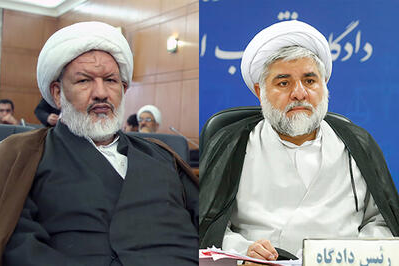
Two Supreme Court judges were shot dead in Tehran on Saturday, state media reported, in a rare deadly attack on senior officials which remains largely unexplained.
Mohammad Moghiseh and Ali Razini, both clerics, were named as the victims. Initially, reports suggested that a third judge had been targeted, but this was later denied by the Judiciary.
State media added that the assailant committed suicide after the shooting.
IRGC-affiliated Fars News reported that the attacker was a staff member responsible for refreshments at Iran's judiciary headquarters who used a handgun in the attack.
The Judiciary Media Center, however, issued a different account regarding the incident suggesting the assailant entered from outside.
"This morning, an armed infiltrator at the Supreme Court carried out a premeditated assassination targeting two brave and experienced judges renowned for their fight against crimes against national security, espionage, and terrorism."
"As a result of this terrorist act, two dedicated and revolutionary judges—steadfast in their defense of public security—were killed."
Iran's Supreme Court counts dozens of judges among its ranks.
The shooter was not involved in any cases in the court nor had been inside as a visitor, the outlet added, saying he died by suicide before police could apprehend him.
ILNA news also reported that several members of staff at Tehran's Courthouse, or Palace of Justice, were arrested on the prosecutor's orders, without elaborating.
"Over the past year, the Judiciary has undertaken extensive measures to identify, pursue, arrest, and prosecute agents and elements affiliated with the despised Zionist regime," ISNA News reported, saying Razini was previously targeted in what it called a terrorist assassination attempt.